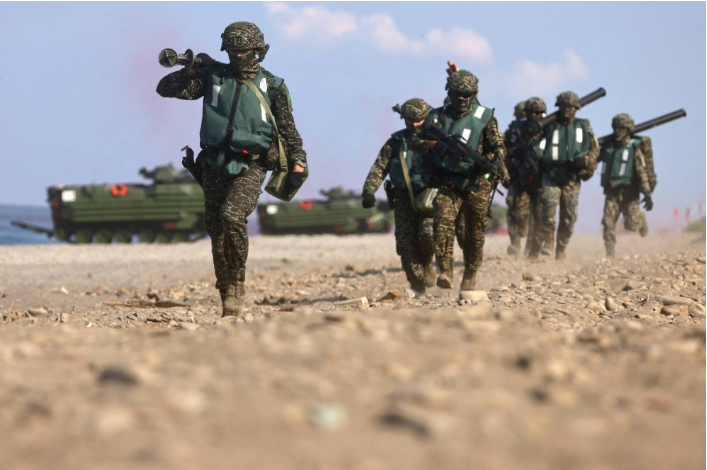Taiwan will get $567 million in military aid from the United States.
The United States will soon send one of its largest-ever security assistance packages to Taiwan — nearly $570 million — the White House said late Monday in a move sure to anger China.
Washington, Taipei’s biggest and most important backer despite a lack of bilateral ties, will use its fastest tool available to deliver the aid to Taiwan, as the democratic island grapples with ramped-up military moves by China in the waters and airspace nearby.
Beijing — which claims Taiwan as a renegade province and has vowed to unify the island with the mainland, by force if necessary — has steadfastly demanded that Washington halt weapons sales to Taipei.
Under the 1979 Taiwan Relations Act, the U.S. is bound by law to sell arms to the island for its self-defense.
In a statement, U.S. President Joe Biden ordered his secretary of state to “direct the drawdown of up to $567 million in defense articles and services of the Department of Defense, and military education and training, to provide assistance to Taiwan.”
The order means the U.S. will directly ship its own weapon stocks to Taiwan, a move it has employed often to support Ukraine’s war effort in its fight to resist Russia’s invasion.
The statement did not offer further details, including the types of weaponry it might send, but the aid would nearly double a $345 million package it sent last year.
While it is not unusual for the U.S. to skimp on details of aid to Taiwan considering the issue’s sensitivity, media reports said the latest security assistance will fund training, stockpiles, anti-armor weapons, air defense and multidomain awareness.
This would also include drones that are crucial to the U.S. and Taiwanese strategy for defending the island. That “asymmetric” strategy hinges on making the price of invading the island too high for China’s massive military.
China calls Taiwan “the core of core issues” and the democratic island’s fate has quickly become the sorest point in the increasingly acrimonious Sino-U.S. rivalry.
On Sunday, China’s top diplomat, Wang Yi, used a statement before the United Nations General Assembly to reiterate this view.
“There is no such thing as ‘two Chinas,’ or ‘one China, one Taiwan,’” he told the body. “On this matter of principle, there is no gray zone or room for ambiguity.”
Biden himself has had a hand in muddying the waters over the issue, repeatedly hinting that he would not rule out using U.S. military force in response to a potential Chinese invasion of Taiwan — though these remarks have often been downplayed by senior American officials.
Senior Japanese officials, including Shigeru Ishiba, who is set to take office as prime minister Tuesday, have in recent years voiced concern over the possibility of conflict over Taiwan, saying such a war would represent an existential crisis for Tokyo.













